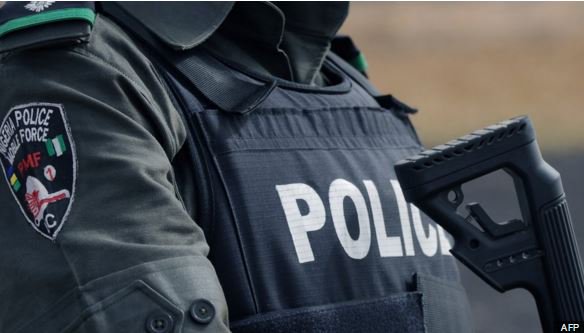Opinion
Nana Nwachukwu: On the Pepper Spray hullabaloo

According to the National Bureau of Statistics, there were 15, 426 cases of offences against persons reported in Lagos state alone. On the 13th of December, 2016 the Lagos State Police Commissioner stated that 162 cases of Rape was recorded in Lagos State for that year alone. Let us note that this statistics by the Commissioner does not included unreported cases, attempted rape and robberies or murders that included elements of rape.
The question is why should citizens not taken precautions legally available to them to protect themselves? The answer lies in the ignorance of the Nigerian Police who confuse the victims for the aggressors.
Some days ago, the Police public relations officer for the FCT, Mr. Yomi Shogunle took to Twitter to ask a young lady who reported that she was arrested by the Nigerian Police on possession of a pepper spray why she had such in her possession asserting that it is an offensive weapon.
Is Mr. Shogunle right? Yes and No. In law Pepper sprays are not offensive simply by virtue of its content or capacity to do temporary harm rather is an offensive weapons only when used in certain contexts and situations, which I would explain below.
First of all, let us examine how a can of pepper spray fell into the classification of an ‘offensive weapon’.
Section 11 of the Robbery and Firearms (Special Provisions) Act states as follows:
“Offensive weapon” means any article (apart from a firearm) made or adapted for use for causing injury to the person or intended by the person having it for such use by him and it includes an air gun, air pistol, bow and arrow, spear, cutlass, marcher, dagger, cudgel, or any piece of wood, metal, glass or stone capable of being used as an offensive weapon;”
You see that not even the law above could properly explain what constitutes an offensive weapon as the premise for the definition falls back to anything ‘capable of being used as an offensive weapon’.
What then is an offensive weapon still? A look at the Section 8 (3) of the Public Order Act states as follows;
“(3) In this section, “offensive weapon or missiles” includes any cannon, gun, rifle, carbine, machine gun, cap-gun, flintlock gun, revolver, pistol, air gun, air pistol or other firearms (whether whole or in detached pieces) bow and arrow, spear, cutlass, matchet, knife, dagger, axe, cudge, horsewhip or any piece of wood, metal or other material, or stone capable of being used as an offensive weapon or missile and includes tear gas, corrosives, inflammable substances or any other thing that is capable of being used to inflict or cause injury.”
Again we are back to anything capable of being used as an offensive weapon with a further addition of anything ‘capable of being used to inflict or cause injury’.
If we were to go with Mr. Shogunle’s seemingly easy and simple explanation and misinterpretation of these laws, human being within the Nigerian legal territory would be arrested simply for possessing hands and legs as these are capable of being used to inflict or cause injuries to another. There lies the problem. These laws however are very unequivocal and emphatic about when possession of items capable of causing or inflicting injuries becomes a crime/an offence. Let us examine these situations;
- Where a person is in possession of such at the commission of a crime: Section 2(a) of the Robbery and Firearms (Special Provisions) Act clearly states that possession of an item capable of causing or inflicting injury whilst committing robbery or stealing would make that item an offensive weapon thereby increasing the weight of a crime of stealing and/or robbery and attracts a stiffer penalty. It is immaterial if you had intentions of using it.
- Where you accompany a person who is in possession of such an item to commit a crime.
- According to Section 11(2) of the Public Order Act, where a person is in possession of such an item at any public assembly or meeting or on the occasion of any public procession except the following gathering;
- Any regular religious service conducted in a mosque, church or any building or other structure customarily used for lawful worship of any description;
- Any charitable, social or sporting gatherings;
- any meeting convened by a department of any government in the Federation or any other body established by law for its own purposes; or
- Any lawful public entertainment.
This clearly means you can carry around your pepper spray can as a mean of protecting yourself as you go about your daily activities, which are not prohibited. You can take your pepper spray to work, to church, to your meetings and even into the Force Headquarters if you so please.
It is irresponsible for Mr. Yomi Shogunle as one who has taken an oath to protect the public to misinform them about their rights and privileges.
_______________________________
Nana Nwachukwu
@MTechlaw






